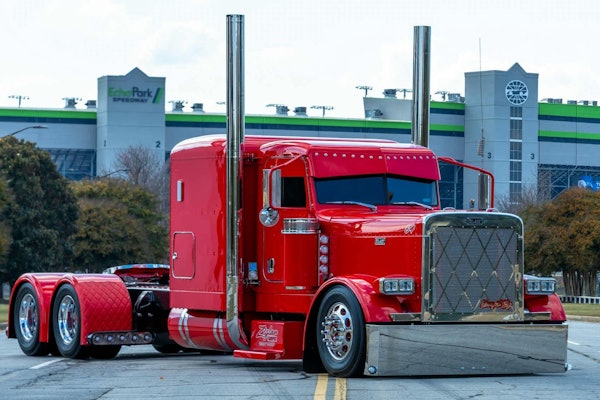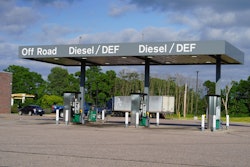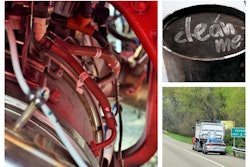Billions of dollars are lost and many lives risked every year as ever-bolder thieves loot the trucking industry.
Thick with Thieves
The roots of cargo theft reach inside and outside the industry.
Miami Heat
Thieves learn the hard way that an idling Pete isn’t as innocent as it looks.
Hijacked!
Some thieves turn to desperate measures to take cargo.
Dwindling Resources
Cargo theft takes a back seat to war on terror.
Big Gain, Little Pain
Weak penalties, high profits make cargo theft more attractive than dealing in narcotics.
National retailer Target Corp. doesn’t take cargo theft lightly. The second largest importer of ocean containers in the United States, Target has a large team of security officers tracking theft.
“It’s a global market for these goods. Stolen goods that used to show up 50 miles away now show up thousands of miles away,” says Tim Kennedy, a senior investigator for Target. “We have to take responsibility for the supply chain from factory floor to store floor.”
But even companies that put a heavy emphasis on cargo security, some of them employing the latest security technology, find that fighting cargo theft can be an uphill battle. Negligent and complacent drivers, easily circumvented security devices and even the design of most trucks and trailers make almost any load an easy mark.

One major problem is drivers who don’t pay attention, law enforcement officers say. They will park a rig with a million-dollar load on the street while visiting a friend or spouse. When they return, the rig is gone. “In at least 80 to 90 percent of these thefts, the driver should have known better,” says private investigator Jim Harris, a founder of Los Angeles County’s anti-cargo theft unit.
“We hear of a lot of thefts on Monday morning,” says Lt. Ed Petow, commander of the Miami-based TOMCATS. “Drivers are passing near their homes, they drop a trailer at somewhere like a big department store and leave it there for the weekend. The thieves are out looking for them. Let me ask you: If you had a car with $200,000 in the trunk would you leave it unattended at a Wal-Mart parking lot over the weekend?”
George Rodriguez, cargo security director for the Transportation Security Administration and a former security director at Yellow Freight, estimates only 20 percent to 30 percent of trailers are locked.
Tractors also are easy prey because they offer little resistance when locked. Truck manufacturers are only now beginning to offer more advanced keys, similar to the ones standard on European luxury cars. Most truck locks can be defeated with a hammer and a screwdriver. Pro Express’s Jerry Nadeau and investigator Jim Harris proved just how easy it is when they invited a convicted cargo thief to break into a truck fitted with heavy security. The thief broke into the truck, hot-wired it, defeated a kingpin lock on the trailer, broke open the trailer and was ready to go within 90 seconds.
More high-tech security devices, like low-profile satellite tracking devices for tractors and trailers, are coming on the market, but they are generally expensive. Since 9/11, the demand for such devices has also been huge. “Customers are talking about it more and more, and there’s a host of government studies going,” says Frank Bio, director of marketing for Volvo Trucks North America. Most devices, such as remote shutdown, are designed to defeat a terrorist attack, but they also can be applied to cargo thefts.
Drew Robertson, director of the Freight Transportation Security Consortium, says a secure truck includes: “On the trailer: GPS location, door sensors, remote locks for the door, remote locks on the spring brake and rear radar. On the tractor: panic buttons, kill switches, remote locking, a communications package, driver authentication.”
(Source: eTrucker.com Poll of 517 users)
The problem, Robertson says, is motor carriers don’t have the money to add such devices. “Fleets haven’t spec’ed a lot in security and safety equipment,” he says. “They don’t even spec airbags on the tractor.” Carriers don’t have much extra money to spend on security – especially when there’s little certain payback. “Insurance companies haven’t given truckers much incentive to add that stuff,” Robertson notes.
On the other hand, insurance companies are reacting to the thefts. “We’re hearing that it’s getting harder to get insurance,” says Petow. “More and more insurance companies are asking higher premiums, demanding higher deductibles and putting more requirements in policies.”
Compounding the problems is the fact that thieves know how to defeat much of the anti-theft equipment. Simply cutting wires easily disarms some systems.
A simple steerage lock, Harris says, could prevent most thefts where the truck is stolen. But truckers have to be willing to put them on. “If you’re an owner-operator, you might do it to protect your own property,” he says. “But a fleet driver doesn’t want to take the time.”
Fleet security personnel admit driver cooperation is a big issue. “We’re pretty good at determining how we will protect a particular product,” says August (Gus) W. Bremer, Jr., security manager for Ryder. “Some trucks will have added security, maybe some electronic hardware.” But the biggest problem Ryder has is getting drivers to follow security procedures – like no side trips and no unauthorized stops.
Carriers have also been forced to step up their scrutiny of drivers. Background checks have become standard, and drivers are usually the first suspects in a cargo theft. Prime Inc. fingerprints drivers for special contracts and keeps the prints on file in case there is a problem. The company also checks criminal databases. That effort plus driver training has resulted in a theft rate under 2 percent, which Randy Price, director of corporate security for Prime, argues is pretty good for a large fleet.
Even with the enhanced efforts in driver and equipment security, fleets say cargo theft is a problem they have to live with. “I don’t think there are any major things the industry could do differently to stop cargo theft,” Bremer says. “What we have to work towards is a better sense of cooperation in the industry.” Some of that cooperation is underway in the form of groups like the National Cargo Security Council. The American Trucking Associations has set up a cargo theft report form on its website. And other associations, law enforcement task forces and truckstop efforts are under way.
But it is no easy battle. “There is a demand out there for certain goods, and we are carrying them,” Bremer says. “If somebody wants what we are carrying badly enough, they’re going to go for it.”






